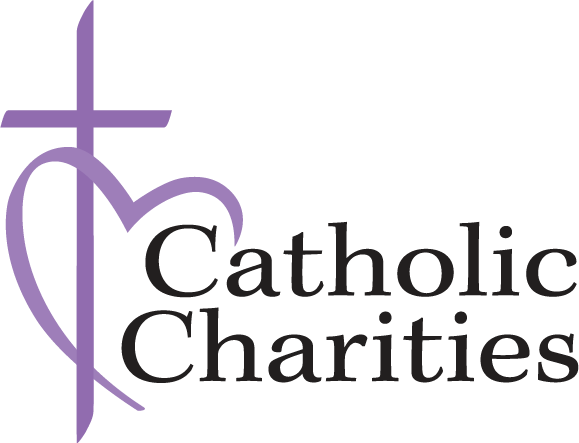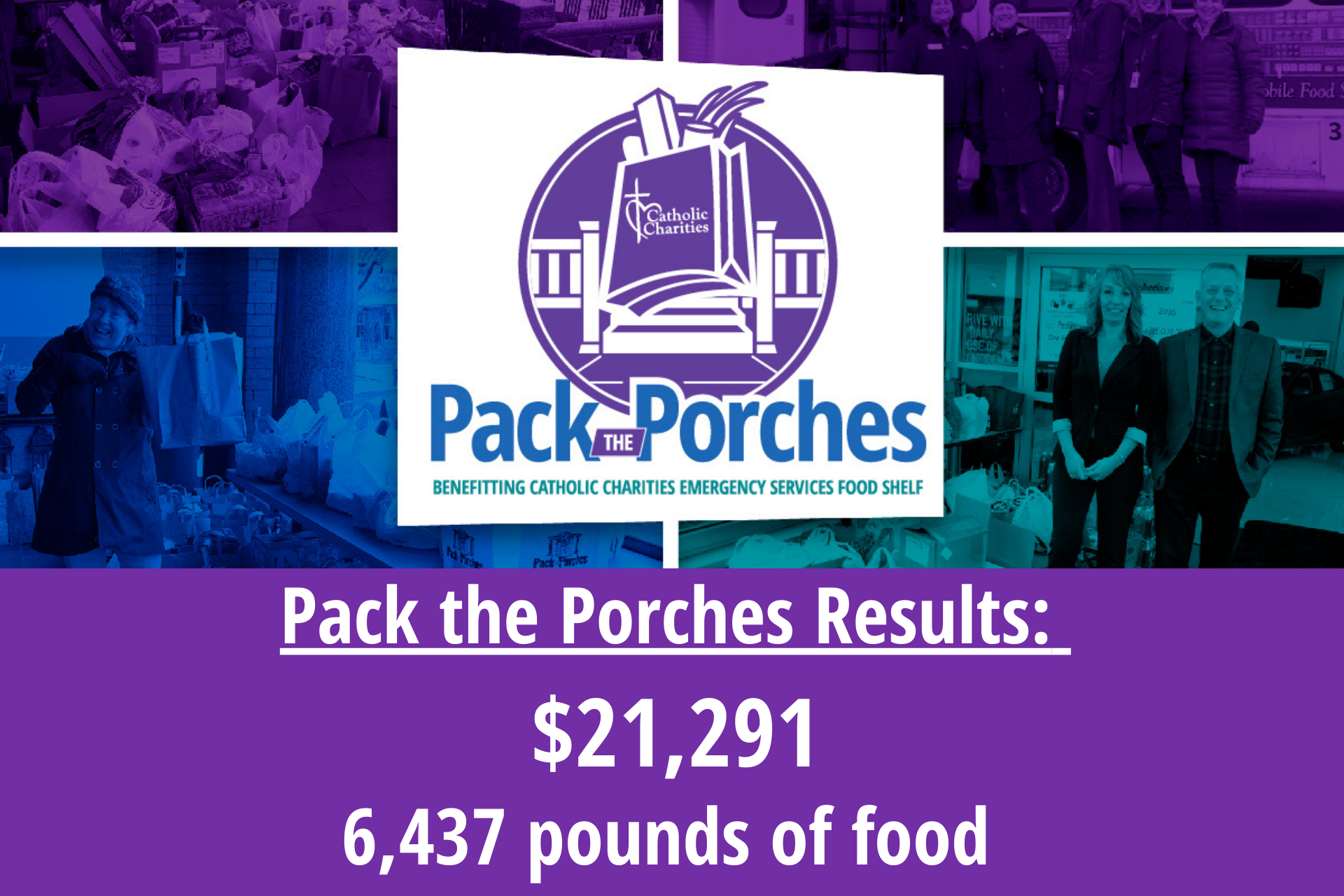National Preparedness Month
September 7, 2023
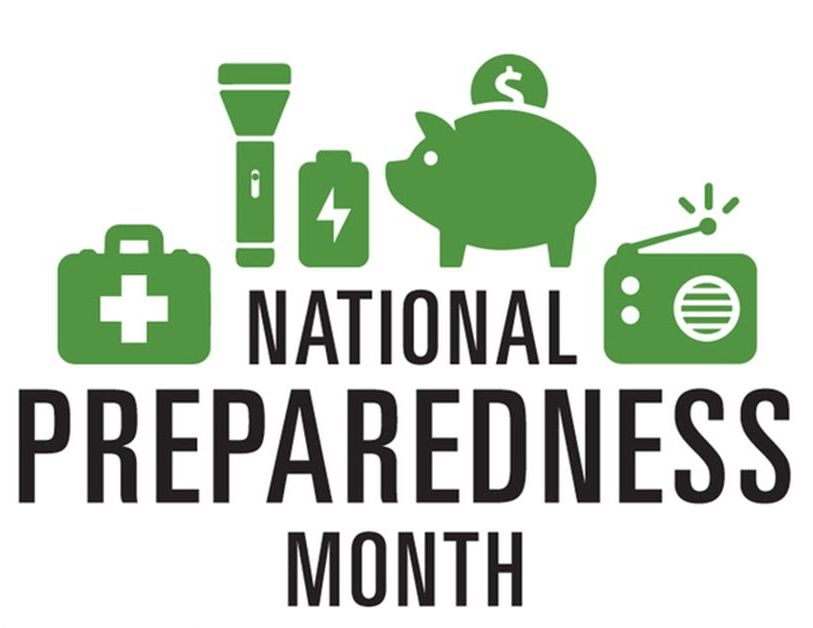
Extreme weather and natural disasters can occur with little warning. Are you ready to leave your home at a moment’s notice?
National Preparedness Month is a great time to get ready for whatever may come your way. Making a plan is the best way to protect you and your family.
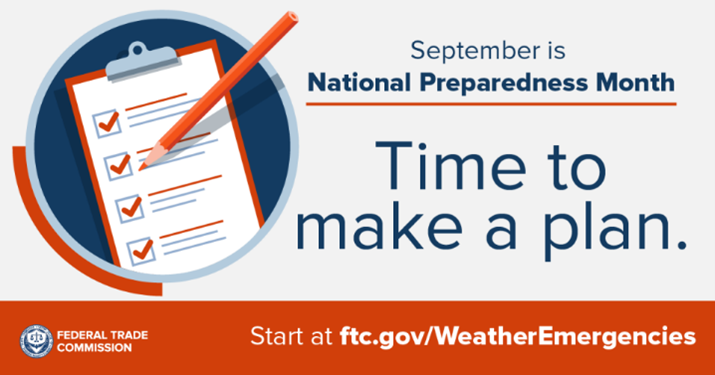
Make a Plan
You can reduce your anxiety by making sure you are prepared if, and when, they happen. Here are some tips to help you get started.
- Check your insurance. Find out if any of your home, health, or other insurance policies will pay for temporary shelter, replacement clothing, furniture, or other items if you are affected by extreme weather or a disaster.
- Plan for your pets. If you’re like millions of animal owners, your pet is an important member of your household. A little planning today can help ensure safety for your pets during an emergency.
- Choose an out-of-town contact. Ask a friend or relative to be the point of contact for your family. Make sure everyone in your family has the information. After some emergencies, it can be easier to make a long-distance call than a local one.
- Sign up for alerts and warnings in your area. Public safety officials use systems to alert you and your family in the event of severe weather and disasters.
- Find out if your local public shelter is open, in case you need to evacuate your home and go there. If you need to evacuate, prepare a “go kit” with personal items you need during an emergency.
Organize Your Finances
In a disaster, financial readiness is as important as a flashlight with fully charged batteries. Leaving your home can be stressful, but knowing that your financial documents are up to date, in one place, and portable can make a big difference. If you’re missing important documents, now’s the time to replace them.
- Do a household inventory. Make a list of your possessions and document it with photos or a video. This could help if you file insurance claims.
- Take advantage of technology. Technology offers tools — like online bill-pay, virtual safe deposit boxes, and USB flash drives — for safeguarding your important documents. It also can make it easier to get to your records, and more convenient to update them.
- Buy a lockable, fireproof file box. Put important documents in it and keep it in a secure, accessible location so you can grab it and go. Include your household inventory, a list of emergency contacts, copies of current prescriptions, insurance information, and copies of other important financial and family records — or notes about where they are.
- Rent a safe deposit box. Documents to store might include: leases and ownership records; credit and loan agreements; birth certificates; Social Security cards; and military papers. For quicker access, consider placing originals in your fireproof box and copies in your safe deposit box.
- Update your information. Review the contents of your household inventory, your fireproof box, safe deposit box, and the information for your out-of-town contact at least once a year.
For more financial readiness tips, visit https://www.fema.gov/emergency-financial-first-aid-kit
Our Recent News
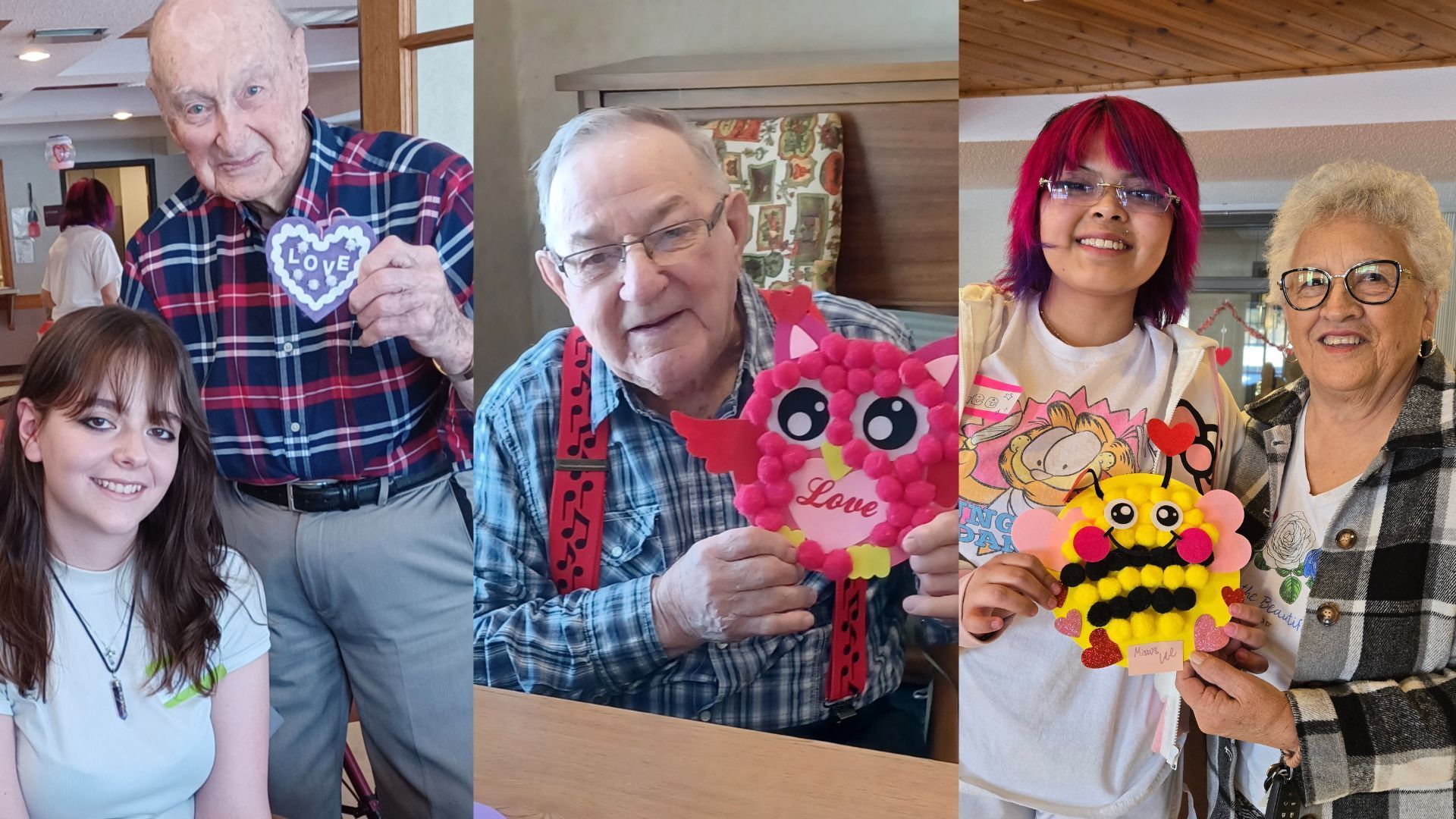
By Brittany Hoversten
•
March 13, 2025
On Tuesday, January 28th, a group of students from Trex North School visited Pond View Estates in Albany, organized by Sandy Baldwin, group leader, and in collaboration with Catholic Charities in St. Cloud. Julie Ueland, the student advisor, helped oversee the project to ensure everything went smoothly. Pond View Estates is a Senior Dining Congregate Kitchen, where seniors gather to enjoy meals and socialize, making it a perfect environment for these students to connect with the residents. When the students arrived, the residents were delighted by the youthful energy and enthusiasm they brought. The students quickly got to work helping the seniors create Valentine’s cards before lunch. The atmosphere was filled with creativity and laughter as everyone worked together to make colorful and thoughtful cards. Afterward, the group enjoyed lunch together, where the dining hall was full of lively conversation. The students interacted with the seniors, hearing their stories and building new connections. The visit bridged generations, fostering meaningful and joyful interactions. The highlight of the day was the bingo game that followed lunch, where excitement filled the room as the numbers were called. Friendly competition brought plenty of laughs, especially when someone was just one number away from winning, only for another participant to grab the prize first. The fun, camaraderie, and shared moments left everyone smiling. A few standout interactions included Joseph and Riley spending time with resident Victor Tschida, and Tianna sharing a special moment with resident Ken Bunger. These connections highlighted the deep impact of intergenerational friendships. For many of the residents, the visit from the students was an unexpected but cherished experience, reminding everyone of the importance of making time for one another. It was a beautiful day of fostering community, connection, and kindness. As the students prepared to leave, there was a sense of fulfillment in the air. Not only had the day brightened the seniors' lives, but it also left a lasting impression on the students, who gained a deeper understanding of the joy and fulfillment that comes from spending quality time with others. The day ended with smiles, hugs, and promises to return, a reminder of how powerful and meaningful human connection can be.
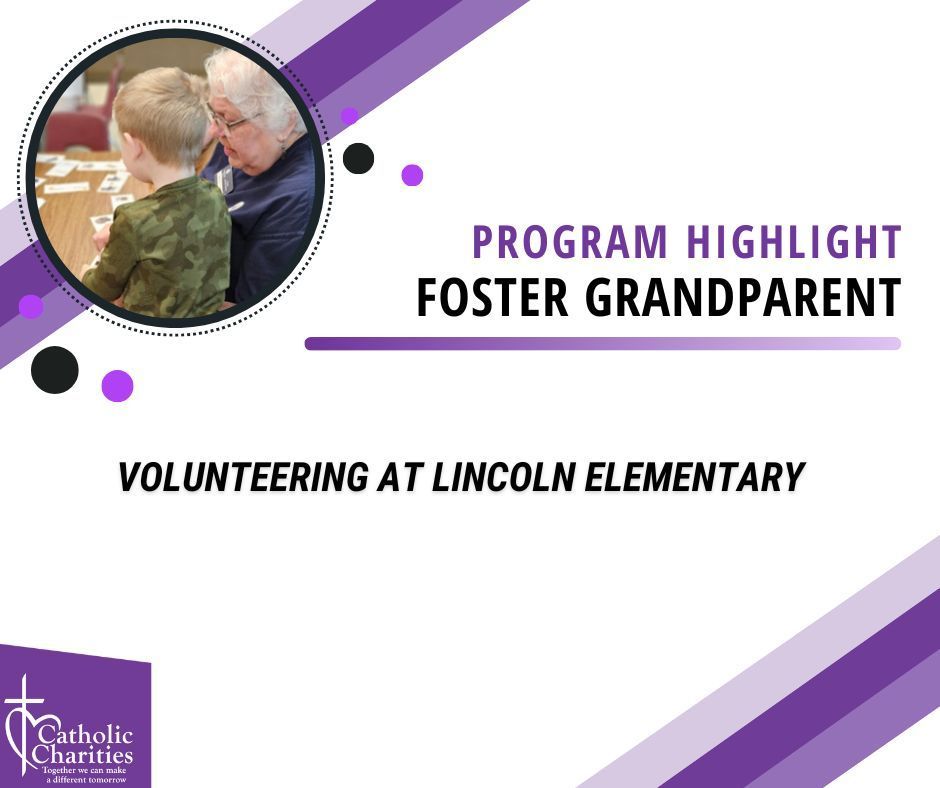
By Brittany Hoversten
•
March 5, 2025
At Lincoln Elementary in Little Falls, the pre-K classroom thrives thanks to Miss Maranda and Dorothy, a Foster Grandparent volunteer. Ms. Maranda values having Grandma Dorothy in the room. "It's great to have someone with a fresh perspective who connects with students," she says. Dorothy helps students with academics and brings a caring approach to the youngest learners. Dorothy enjoys her role, finding it both fun and meaningful. "The kids are so much fun, and I'm happy to help with lessons that impact their learning for years," she says. The appreciation between Miss Maranda and Dorothy is mutual. "Dorothy brings positivity, is helpful and kind, and has become an integral part of our classroom team," Miss Maranda shares. Dorothy feels valued, especially when teachers note her impact on students. "When my teacher tells me, 'I can tell which students you've worked with,' it lets me know I’m making a difference," Dorothy says. Their collaboration has led to touching moments, such as a student hugging Dorothy at Walmart. "It shows the lasting connection we’ve made," Dorothy recalls. Miss Maranda echoes this, saying, "We’d gladly welcome another foster grandparent into our program. It’s refreshing to have a grandparent figure who makes a lasting impact on both learning and relationships." Dorothy’s support is important for struggling students. "I love encouraging them to do their best," she says, finding joy in seeing their proud faces when they grasp a concept or complete a project. The partnership between Miss Maranda and Dorothy highlights the impact of volunteers. Dorothy’s positivity, support, and perspective enhance the learning experience and provide invaluable help to teachers, showcasing the mutual benefits of the Foster Grandparent Program.
